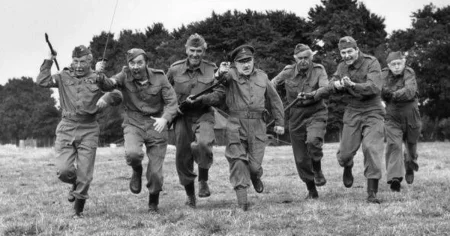Richard Basson, a 45-year-old man from Leicestershire, was found guilty of the murder of his partner, Carrie Slater, after shooting her in the head in their home. Basson called 999 to report that Slater had been accidentally stabbed with a pool cue. He was sentenced to life imprisonment with a minimum term of 32 years, for his crime, as well as additional jail terms for weapons-related offenses. Despite his claims that Slater had run into a pool cue during an argument, it was later discovered that she had sustained a gunshot wound. Slater tragically passed away two days after the incident.
Slater’s family expressed relief that justice had been served, but shared their ongoing grief for their daughter and sister. They acknowledged the outpouring of support they had received but also noted that nothing could bring Carrie back. Basson admitted to causing Slater’s injuries when the police arrived at the scene and provided conflicting accounts of what had transpired. The paramedics who treated Slater at the hospital determined that her injury was the result of a gunshot, contradicting Basson’s initial explanation. The tragic outcome of the incident left Slater’s family devastated and mourning her loss.
The court proceedings following Basson’s arrest revealed the extent of his crime and the impact it had on Slater’s loved ones. Basson’s admission to owning a banned firearm and possessing ammunition without certification further incriminated him in the murder. The judge handed down a severe sentence reflecting the seriousness of his actions and the irreversible consequences they had for Slater and her family. Basson’s attempt to justify his actions and downplay the nature of Slater’s injuries only added to the grief and pain experienced by those who knew and loved her.
The news of Carrie Slater’s murder shocked the community and highlighted the prevalence of domestic violence, even in seemingly ordinary settings like a suburban home. Basson’s crime served as a reminder of the dangers posed by individuals who resort to violence in relationships and the devastating impact it has on families and communities. Slater’s tragic death underscored the need for increased awareness and support for victims of domestic abuse, as well as the importance of holding perpetrators accountable for their actions. The case also highlighted the vital role of law enforcement and the justice system in addressing such crimes and delivering justice to victims and their families.
The sentencing of Richard Basson for the murder of Carrie Slater marked a significant moment in the quest for justice and closure for her family and friends. While the sentence could never bring back the life that was lost, it provided a measure of accountability for Basson’s actions and hopefully served as a deterrent for others who might consider resorting to violence. The family’s expressions of gratitude for the support they received and their commitment to honoring Slater’s memory reflected the deep impact of her loss on those closest to her. The case served as a poignant reminder of the fragility of life and the need to cherish and protect those we love.















